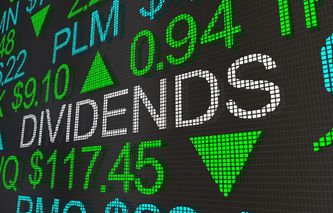Definition
The financial accounting term reconciliation of bank account balances refers to the process of understanding the difference between the company's records of cash in their account, and the amount appearing on a statement received from the bank.
Explanation
At the end of each accounting period, companies go through a bank statement reconciliation process to understand any differences between the company's record of the account balance and that appearing on the statement issued by the bank.
The company's general ledger will contain a record of cash transactions that impact the balance in their bank account; this includes deposits as well as withdrawals. It's also possible for companies to predict monthly charges, such as account maintenance fees. When a company receives its monthly statement from the bank, it needs to go through a process that verifies the amount shown on the bank's statement is consistent with the company's record of cash in the account.
As part of this reconciliation process, the following conditions may be identified:
Deposits in Transit: cash that has been recorded as received by a company, sent to their bank account, but not yet posted to the account's statement by the bank.
Outstanding Checks: recorded by a company as being written, but not yet cleared and posted to the account's statement by the bank.
Charges and Fees: costs applied to an account balance for services such as bank checks, non-sufficient-funds (NSF) check processing, safe deposit box rentals, and overdraft protection.
Credits: deposits made to an account such as income on an interest-bearing checking account.
This reconciliation process is part of the accounting cycle, allowing the company to accurately report cash, a current asset, on its balance sheet.
Example
Company A's records indicate a starting balance of $157,300 in their bank account in December. During the month, $93,700 in cash deposits was made to this account, along with withdrawals of $82,100. The January bank statement reconciliation process revealed Company A had $6,000 in deposits in transit as well as $8,000 in outstanding checks.
The December bank statement indicates $250 in bank charges and fees associated with checks with insufficient funds, in addition to interest income of $80. Company A's ending bank balance is calculated as follows:
| Bank Account Balance (Starting Balance) | $157,300 |
| Add: Deposits | $93,700 |
| Add: Deposits in Transit | $6,000 |
| Add: Credits (interest income) | $80 |
| Less: Withdrawals | $82,100 |
| Less: Outstanding Checks | $8,000 |
| Less: Bank Charges and Fees | $250 |
| Bank Account Balance (Ending Balance) | $166,730 |
| Balance per Bank Statement | $166,730 |
| Difference | $0 |
Related Terms
accounting cycle, current asset, cash, charges and fees, cash over and short, deposits in transit, outstanding checks, bank credits
.jpg)


